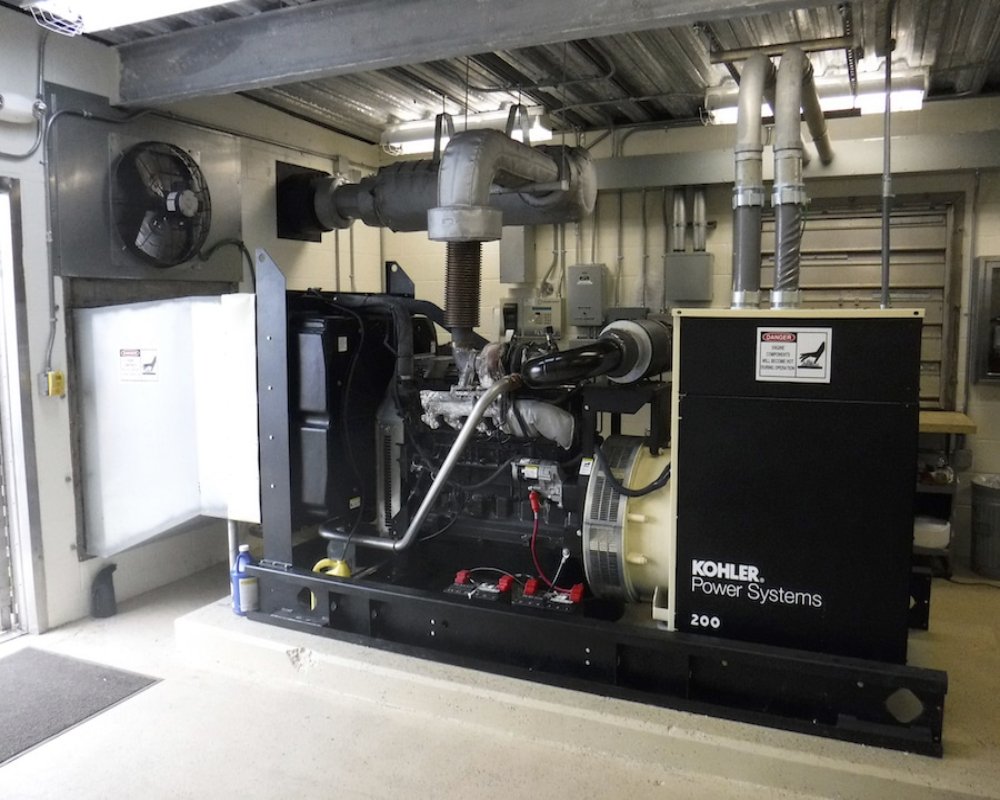Introduction to Power Backup Options for Commercial Sites
Power backup systems are critical for maintaining continuous operations in commercial properties during electrical outages or disruptions. These systems are designed to ensure that businesses can continue functioning without interruption, preventing data loss, equipment damage, and service disruptions. Whether it’s for an office building, manufacturing plant, or retail center, a reliable power backup solution is a necessity. This article explores the various power backup options available for commercial sites, focusing on their features, benefits, and applications.
1. Uninterruptible Power Supply (UPS)
An Uninterruptible Power Supply (UPS) is one of the most common power backup solutions used in commercial properties. It provides immediate backup power in the event of an outage, typically for a short duration, allowing businesses to shut down equipment safely or switch to a secondary power source. UPS systems are essential for critical operations such as data centers, hospitals, and telecommunications facilities, where even a momentary power loss can result in significant losses.
2. Standby Generators
Standby generators are designed to provide power during extended outages. Unlike UPS systems, which provide short-term backup, standby generators automatically start when the main power supply is interrupted and can run for hours or even days, depending on the fuel source. These generators are typically powered by natural gas, diesel, or propane and are ideal for commercial properties that require long-term power backup, such as office buildings, hospitals, or factories.
3. Diesel Generators
Diesel generators are a popular choice for commercial backup power because of their reliability and ability to produce large amounts of power. They are well-suited for larger properties and industrial sites that need a continuous power supply during prolonged outages. Diesel generators are fuel-efficient and durable, but they do require regular maintenance and fuel storage to ensure their effectiveness during emergencies.
4. Natural Gas Generators
Natural gas generators are another popular option for power backup in commercial properties. They are typically more environmentally friendly than diesel generators, emitting fewer pollutants. These generators are often preferred for their lower operating costs and faster startup times. Natural gas generators can provide long-term backup power for businesses, particularly those located in areas with easy access to natural gas pipelines.
5. Battery Storage Systems
Battery storage systems are becoming an increasingly viable backup option for commercial sites. These systems store energy during normal operation and release it when needed. While more commonly used in conjunction with renewable energy sources like solar power, battery systems can also be used for backup power. They are compact, require less maintenance than traditional generators, and are a good option for businesses looking to reduce their carbon footprint.
6. Solar Power with Battery Backup
Solar power systems combined with battery backup are an innovative and sustainable solution for commercial properties. Solar panels generate electricity during the day, which is then stored in batteries for use during nighttime or power outages. This combination allows businesses to reduce their dependence on the grid and ensures a reliable power supply. Solar power with battery backup is particularly useful in areas with high solar exposure and businesses that want to prioritize sustainability.
7. Fuel Cell Backup Systems
Fuel cells are a newer technology used for power backup in commercial settings. They work by converting chemical energy into electrical energy through a reaction between hydrogen and oxygen, producing water and heat as byproducts. Fuel cells are highly efficient, environmentally friendly, and can run for extended periods with minimal emissions. Although they are still relatively expensive compared to other backup options, fuel cells are becoming more attractive for businesses focused on clean energy solutions.
8. Hybrid Backup Systems
Hybrid backup systems combine multiple backup power solutions, such as batteries, generators, and solar panels, to create a more robust and reliable power backup system. These systems can optimize energy use by switching between different power sources based on availability and demand. Hybrid systems are particularly useful for businesses that require uninterrupted power but also want to reduce their reliance on fossil fuels or the grid.
9. Remote Monitoring and Automation
Many modern backup power systems come equipped with remote monitoring and automation features. These systems allow property managers and business owners to monitor the status of their backup power systems in real time, ensuring that everything is functioning properly. In case of an outage, the system can automatically switch to backup power without requiring manual intervention. This is especially important for businesses that need to monitor backup systems at multiple sites or remote locations.
10. Maintenance and Testing of Backup Systems
Regular maintenance and testing are crucial for ensuring the reliability and longevity of backup power systems. Commercial property owners must schedule routine inspections of their backup generators, batteries, and other power systems to ensure that they are ready to operate when needed. Proper maintenance helps to prevent equipment failure during emergencies and ensures that backup systems meet local safety and performance standards.
Conclusion
Power backup systems are an essential investment for commercial properties, ensuring that businesses can continue operating during power outages or disruptions. The choice of power backup solution depends on the size of the property, the criticality of operations, and sustainability goals. From UPS systems and standby generators to solar power with battery backup and hybrid systems, businesses have a range of options to ensure reliable power availability. Regardless of the chosen solution, regular maintenance, testing, and monitoring are necessary to guarantee that the systems function effectively during emergencies.
Hashtags
#PowerBackup #CommercialPower #BackupSolutions #BusinessContinuity #EnergyManagement #UninterruptiblePowerSupply #UPS #GeneratorSystems #RenewableEnergy #SolarBackup #BatteryStorage #PowerOutage #EnergyEfficiency #BusinessResilience #EmergencyPower #PowerReliability #CommercialGenerators #LoadShedding #PowerSolutions #SustainableEnergy


